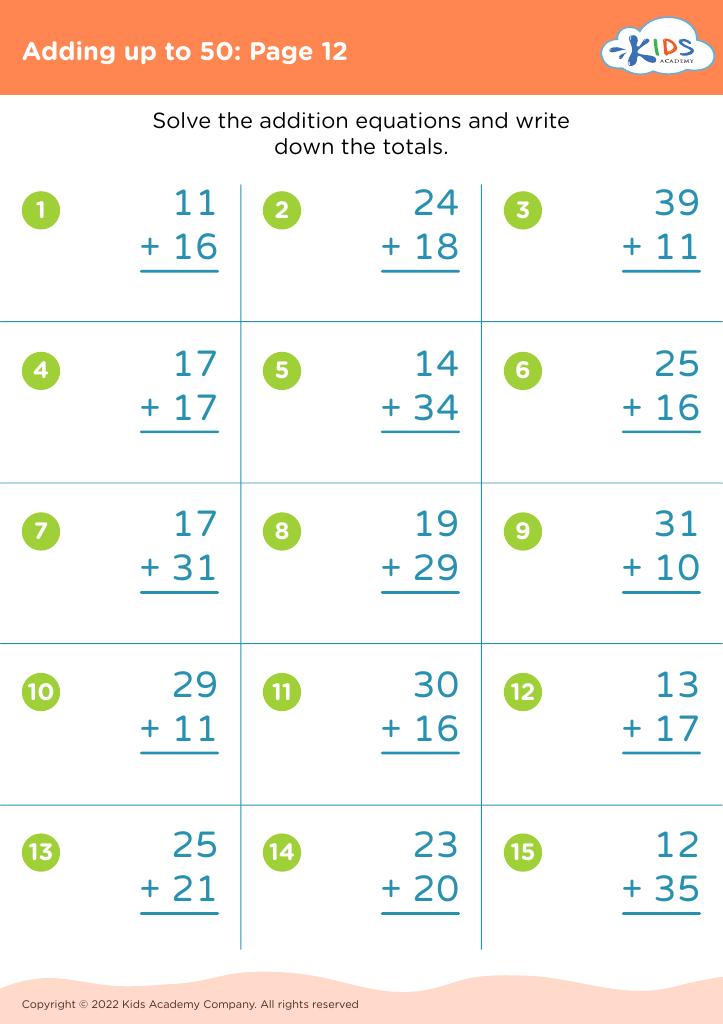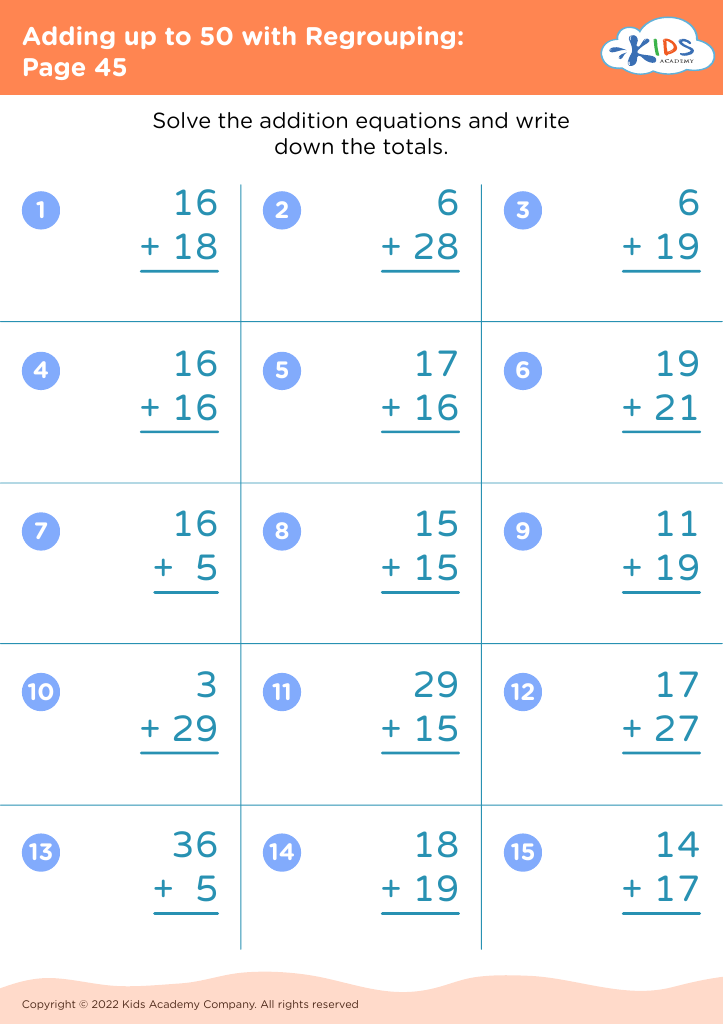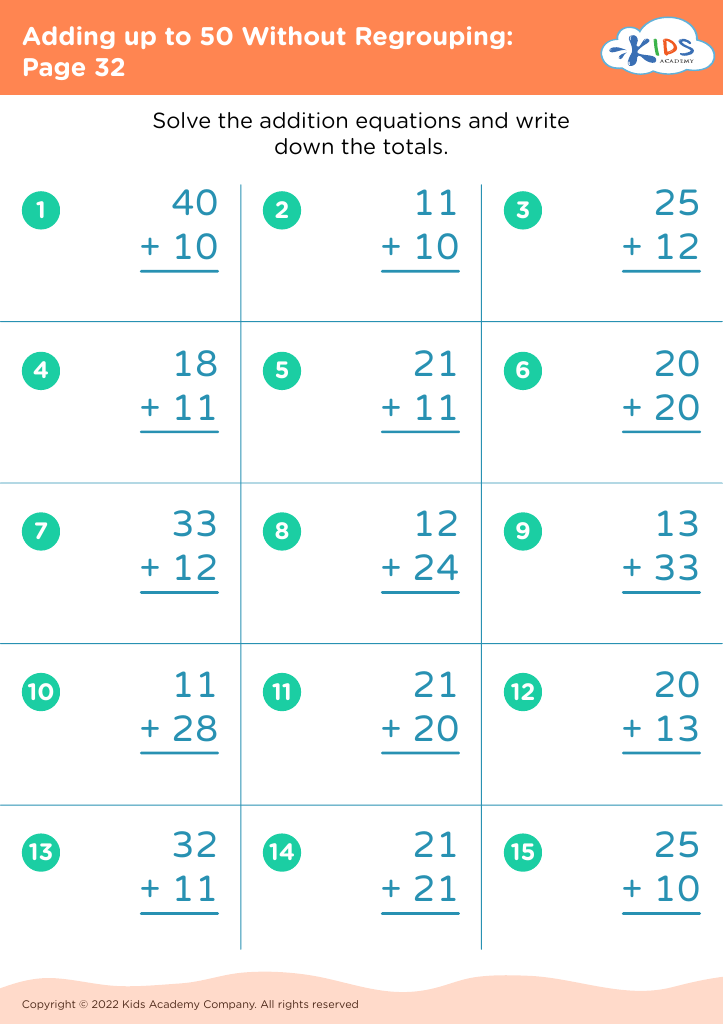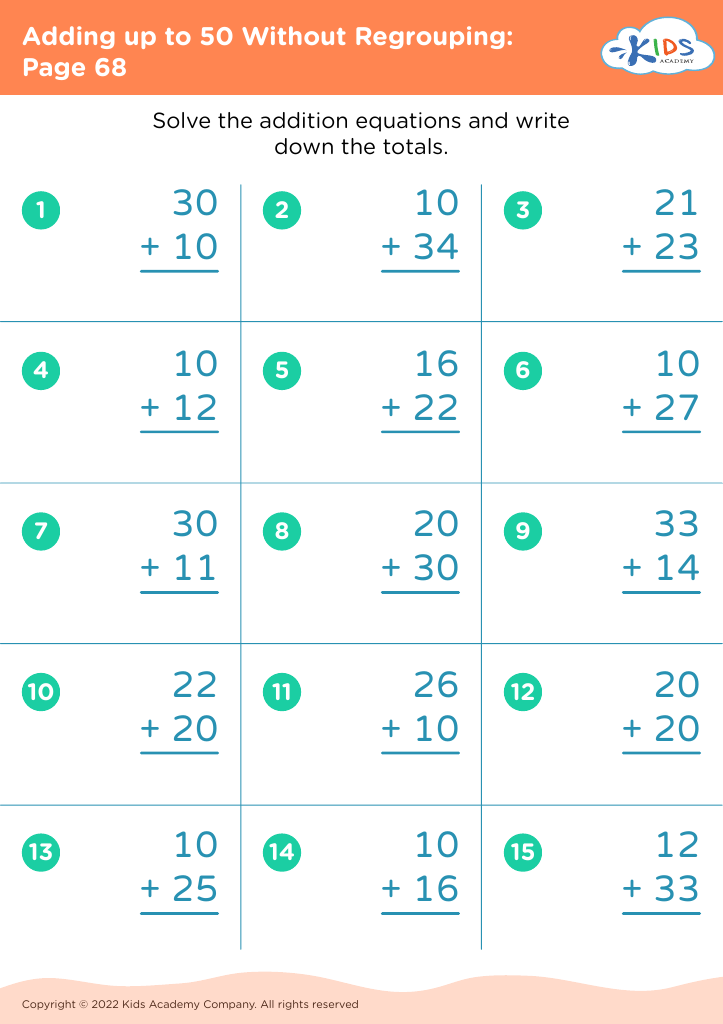Basic Addition Skills Adding up to 50 Worksheets for Ages 8-9
5 filtered results
-
From - To
Boost your child's math skills with our "Basic Addition Skills Adding up to 50 Worksheets" designed for ages 8-9! Our expertly crafted worksheets provide engaging exercises to help young learners practice and master basic addition concepts up to 50. Each worksheet features a variety of fun, interactive problems that inspire confidence and promote critical thinking. Perfectly aligned with common educational standards, these resources offer excellent support for classroom learning or at-home practice. With colorful design and stimulating content, your child will enjoy developing their math proficiency. Start your child's journey to math success with our exciting and effective worksheets today!
Parents and teachers should care about basic addition skills up to 50 for children aged 8-9 because these foundational math abilities are pivotal building blocks for future learning. At this age, children are transitioning from simple arithmetic to more complex concepts in mathematics. Mastery of basic addition within the 0-50 range enhances their numerical fluency and confidence, which in turn fosters a positive attitude towards math.
Strong addition skills help children tackle real-world problems, enhancing critical thinking and decision-making abilities. For instance, understanding how to add figures up to 50 aids in everything from basic shopping transactions to understanding quantities in everyday life. Furthermore, addition is fundamental to other key areas of math such as subtraction, multiplication, and eventually division and more advanced topics.
From a cognitive development perspective, practicing addition encourages memory retention, focus, and problem-solving skills. Teachers and parents who actively support and engage with children in learning these basics set the stage for academic success across subjects. Additionally, children who grasp addition concepts thoroughly are better prepared for standardized tests and academic assessments, reducing anxiety and boosting overall educational performance. In summary, investing in strong basic addition skills for young learners ensures they are well-equipped for future complex mathematical challenges and daily life tasks.

















